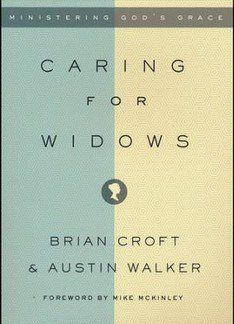I have had a bee in my bonnet that widows in churches are a neglected group and, therefore, I was delighted to review this book.
Brian Croft and Austin Walker have combined ‘to inform the reader of the biblical imperatives upon God’s people for this task, and then give practical helps on how pastors and church leaders can particularly minister to widows’ (p.14).
The first part of the book, written by Austin Walker, is the biblical warrant for the care of the widow. He explores the duties of the church, providing a biblical mandate for a specific ministry to widows. Two key verses are focused upon, James 1:27 and Psalm 68:5. Widows (and orphans) face troubles that are peculiar to their situation.
Walker goes on to consider the Lord’s care of his own mother when on the cross; Moses’ teaching on the price of neglecting widows; and the compassion of Boaz, Elijah and Elisha. Further chapters concern the character of the Lord Jesus and his conduct toward widows, as well as the early church’s response to widows and the establishing of deacons.
The conclusion of this first part is that every church (including elders and deacons) has a responsibility toward believing widows. Walker points out that the help offered should not just be material and financial, but spiritual — an expression of their love for God and obedience to him, reflecting the character of God and the compassion of the Lord Jesus Christ.
Each chapter also contains useful implications for twenty-first century churches and Christians.
The second part, by Brian Croft, is on pastoral application in developing a ministry to widows in the congregation. This covers ministering the Word to widows; equipping the church; the length of time for a visit; writing cards; taking gifts; the involvement of the pastor’s whole family; and, finally, younger women visiting older widows to learn from them.
I found this second part more applicable to the typically larger American congregations (Croft himself pastors a church in Kentucky). This contrasts with the usually smaller UK churches, where the situation of widows is more familiar to us. Nonetheless, there are useful suggestions.
The final chapter is Andrew Fuller’s letter on the care of the widows and orphans of Christian ministers. This useful book is very readable, with short but far-reaching chapters, essential for aiding churches to care for their widows.
Wendy Sheehan
Welwyn








